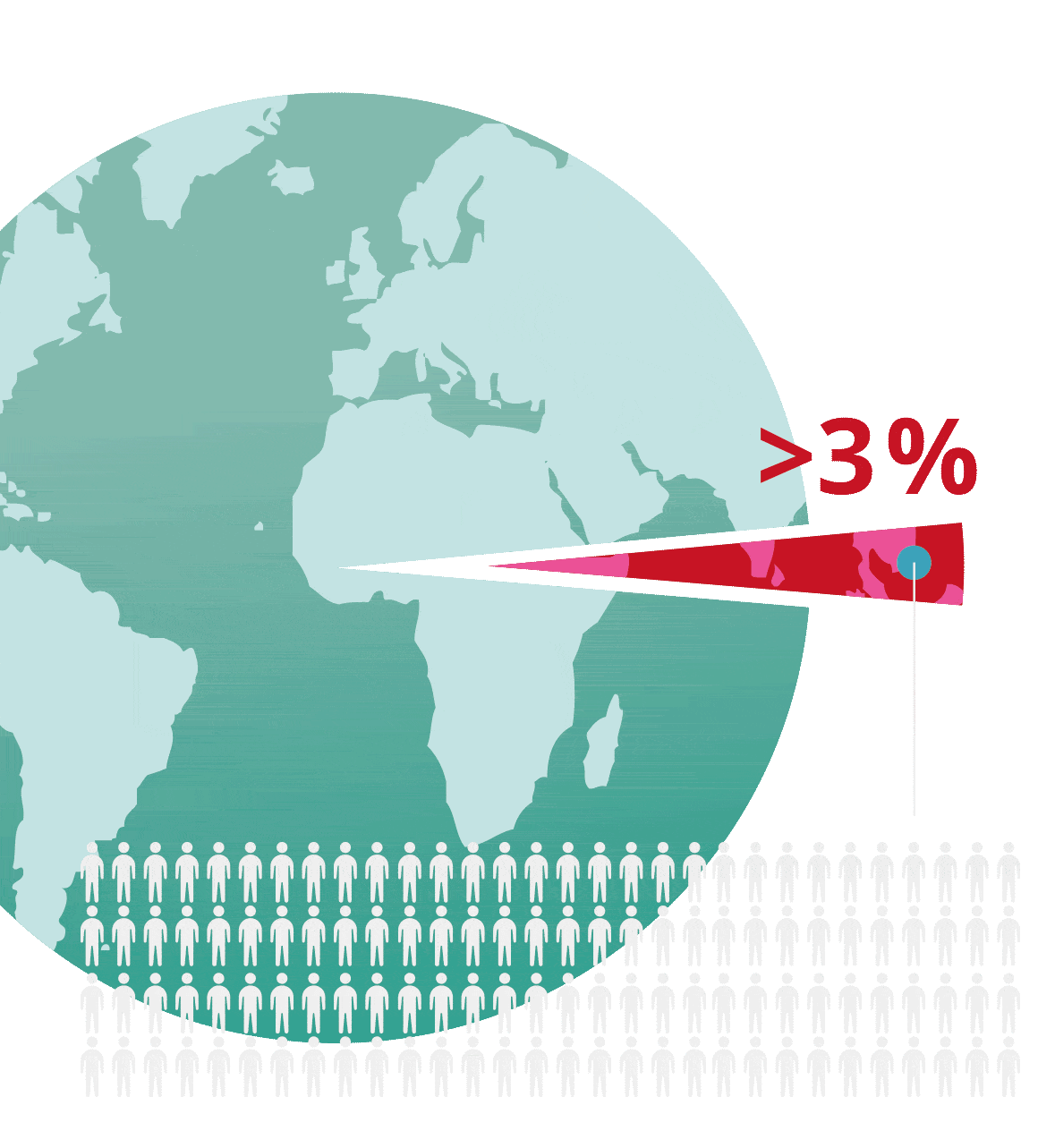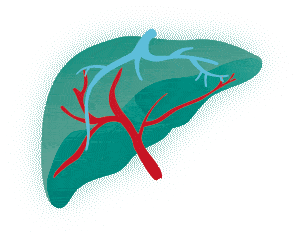
The best way to prevent hepatitis B is to get vaccinated. Hepatitis B vaccines are safe, available and effective.
Viral Hepatitis, including Hepatitis B, is a public health problem worldwide at least as dangerous as HIV, tuberculosis or malaria. Despite the significant burden it places on individuals and health systems in all regions of the world, hepatitis B has been largely ignored as a health and development priority and numbers remained constantly high over the past decades. According to WHO estimates from 2015, more than 250 million people were living with chronic hepatitis B infection leading to more than 880 000 deaths per year. Only 10.5% of all individuals estimated to be living with hepatitis B, even knew they were infected, and only 16.7% of those diagnosed were receiving treatment. Without specific action, the number of humans living with hepatitis B virus (HBV) is expected to remain at the current, high levels for the next 40–50 years, with a cumulative 20 million deaths occurring between 2015 and 2030. The TherVacB Project is working hard to support the United Nations Sustainable Development Goal number 3.3 calling for specific action to combat viral hepatitis – by raising awareness and by developing a cure.

More than 3 % of the world population is infected with the hepatitis B virus – that is more than 250 million people
Only 1 in every 10 people is aware of their hepatitis B virus infection

A vaccination can protect you from the disease
Every 30 seconds a person dies of the consequences of a hepatitis B virus infection
WHAT IS HEPATITIS B?
The hepatitis B virus causes liver inflammation


Your immune system eliminates the hepatitis B virus in 95% of cases in adults, but 5% become chronic

In young children, the infection becomes chronic in >90% of the cases, and should be monitored for treatment indication


Liver cancer

If the virus infection becomes chronic and is not treated it can cause liver cirrhosis and liver
cancer
Be aware of symptoms that may indicate hepatitis B. Get tested.
The hepatitis B virus (HBV) can lead to both, acute and chronic infection that causes often silent or unrecognized liver inflammation. Chronic HBV carriers are often not aware of their deadly disease for a long period of time. Those who develop symptoms, suffer from fatigue, poor appetite, stomach pain, nausea or jaundice. For many adolescents and adults, hepatitis B is a short-term illness – they resolve an acute infection and develop long-lasting immunity. For others and in particular for young children, HBV infection persists and becomes a long-term, chronic infection – often unnoticed. Those affected are at high risk to develop liver cirrhosis and liver cancer and to finally die from it. As it is very hard to diagnose HBV infection due to the lack of specific symptoms, blood tests are needed to diagnose and inform those who are affected and should receive medical care.
WHO IS AT RISK?
low (< 2 %)
Rate of chronic hepatitis B virus infection
(in % of total population)
Source: Man-Fung et al., Nature Reviews Disease Primers, 2018

People who are, or whose parents are from one of these countries or regions

Children of mothers infected with the hepatitis B virus

People who are in close contact with an infected person and share unclean sanitary facilities, dishes, cutlery, etc.

People who have unprotected sex with a person at risk or have more than one sexual partner within 6 months

People with HIV or an other sexually transmitted disease

Men who have sex with men


People who share needles, inject drugs, or come into contact with blood

Emergency personnel, social workers and health care providers, with direct contact to infected persons

Dialysis patients

People that live or work in an institution like a prison or a group accomodation
For more detailed information about hepatitis B disease, prevention, diagnosis and currently available treatments, we kindly refer to the Hepatitis B Foundation whom we closely collaborate with.
HOW IS HEPATITIS B TRANSMITTED?
Like HIV via blood and body fluids, but it is 100 times more infectious
Direct contact with infected blood
Unprotected sex with an infected person
Sharing unsterile medicinal instruments or needles with an infected person (including IV drug use, tatoo/piercing needles)
An infected mother to her newborn baby during pregnancy or during birth
Being in close contact with an infected person and sharing unclean sanitary facilities, dishes, cutlery, etc
Sharing toothbrushes, razors, nail clippers, earrings or body jewelry with an infected person
What you should know about hepatitis B:
HBV is transmitted by blood-blood contact, by sexual contacts or directly from a mother to her child around birth. The latter is the most frequent route of transmission resulting in chronic infection, of unrecognized for decades. Adolescents and adults who are not vaccinated can catch the virus during unprotected sexual contact or by contaminated blood products or instruments, e.g. by tattooing or any invasive procedure, or by drug abuse with contaminated syringes and supplies.
B Aware – get tested and get vaccinated!
Ask your doctor to test you for hepatitis B virus infection, and
-
IF YOU ARE NOT INFECTED:
about getting the hepatitis B vaccine
-
IF YOU ARE INFECTED:
discuss with your doctor how to manage
hepatitis B. Frequently visit your liver
specialist or physician to check up on the
virus & prevent liver damage
For more detailed information about hepatitis B disease, prevention, diagnosis and a list of currently available treatments and those under development we kindly refer to our partner, the Hepatitis B Foundation.

Hep B community
Join the HepBcommunity.org, a new global online forum dedicated to supporting those living with and affected by hepatitis B.
If you are not sure whether you have been vaccinated and don’t know your personal status there are opportunities for the public to get tested for potential HBV infection.
European test finder
Locations for testing in Europe can be found here.
